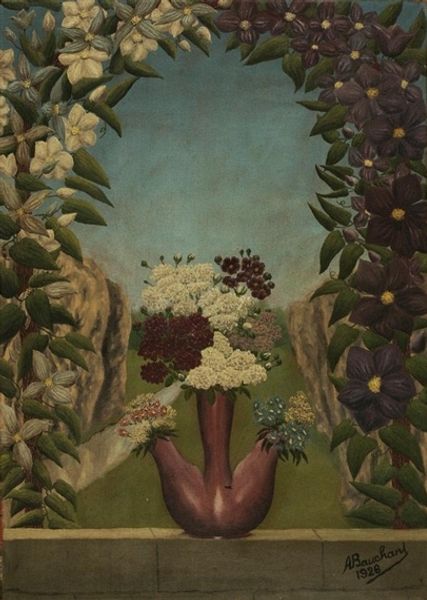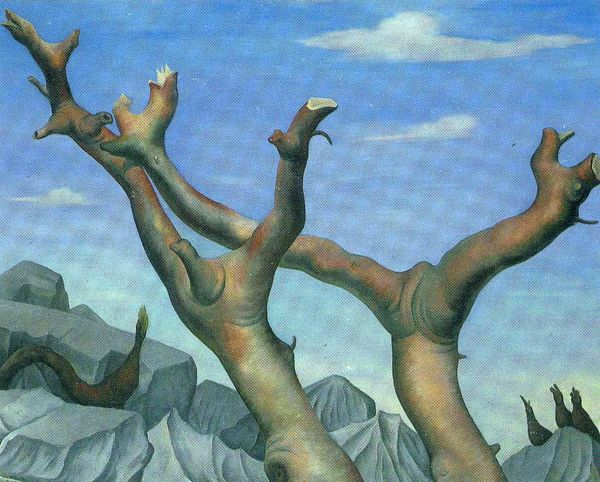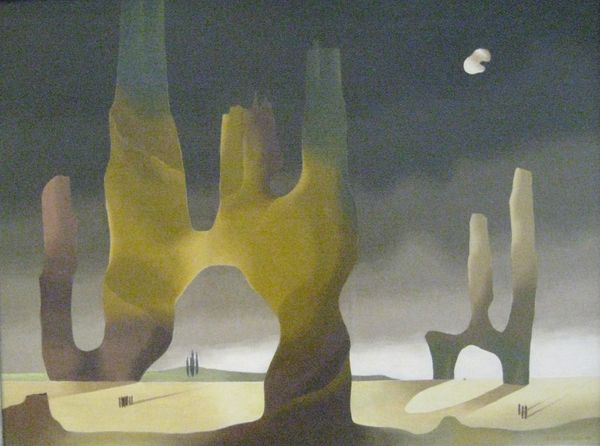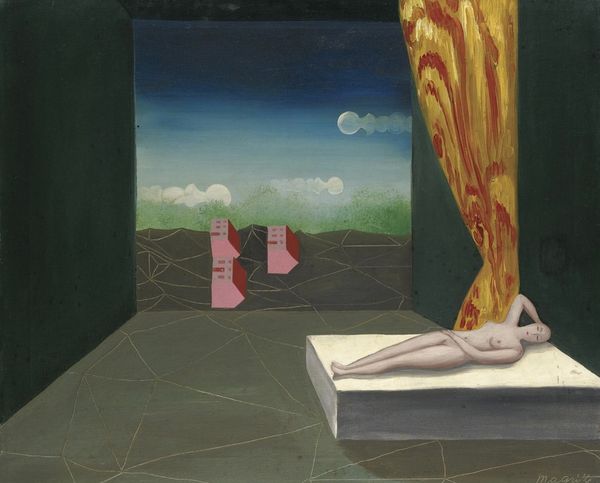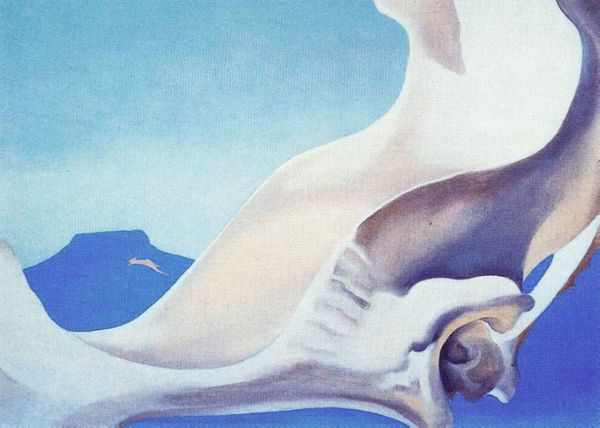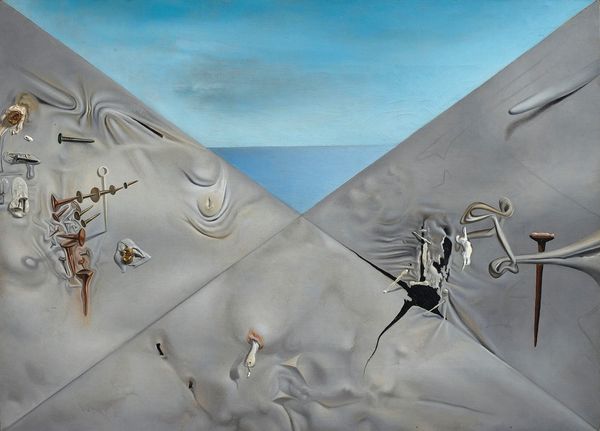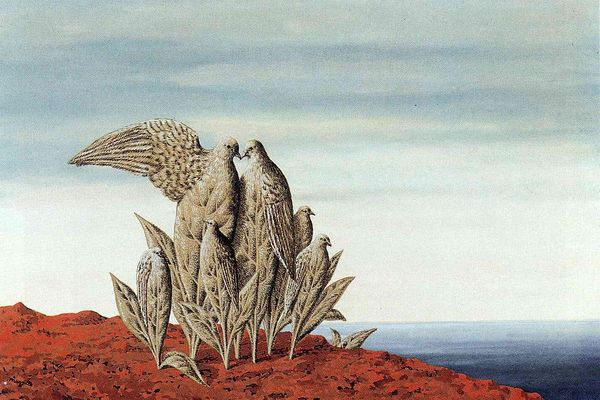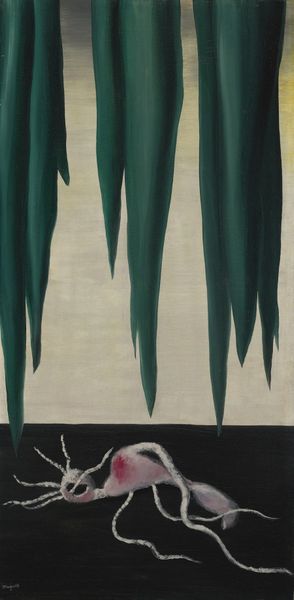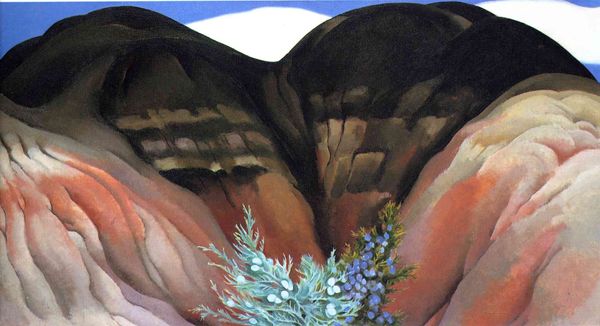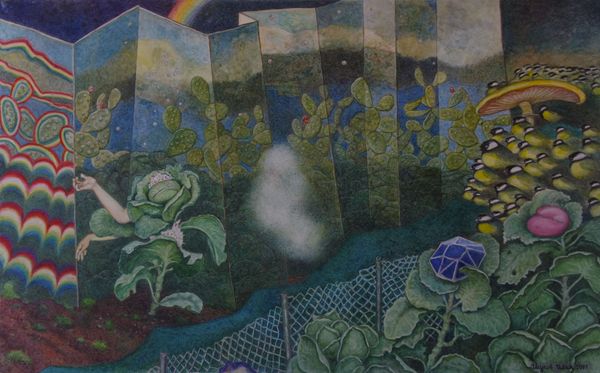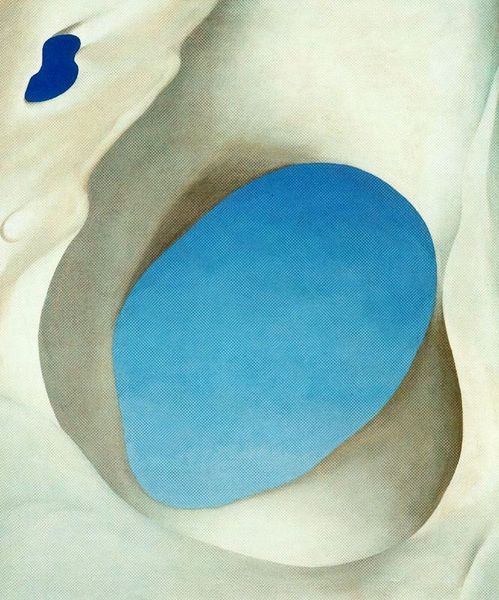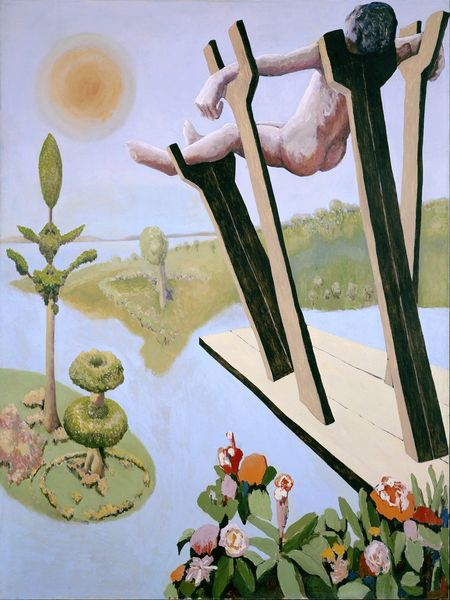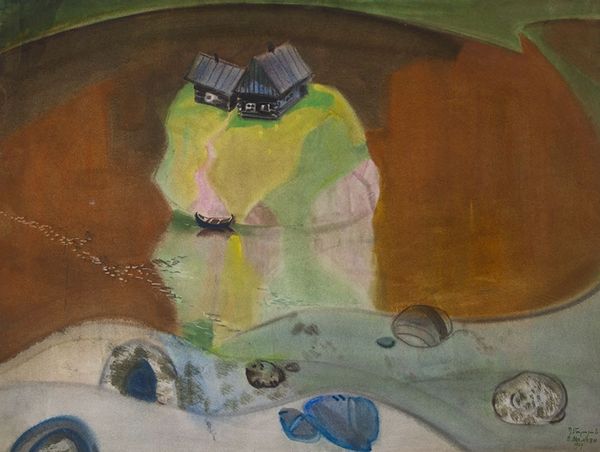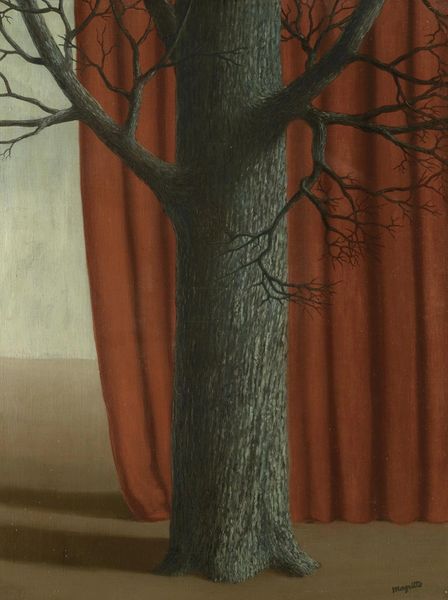
Dimensions: support: 438 x 914 mm
Copyright: © Tate | CC-BY-NC-ND 4.0 DEED, Photo: Tate
Curator: Thomas Lowinsky's "The Breeze at Morn"—it feels like stepping into a dream, doesn't it? Editor: It does—the muted palette and almost theatrical staging, though, give it a somewhat unsettling feel. I'm interested in the layering of the paint itself; it seems intentionally subdued. Curator: Absolutely. Lowinsky was quite interested in symbolism. That winged head—perhaps a Zephyr—seems to breathe life into the landscape. Editor: And what life is that, exactly? Those lilies feel more like set decoration than naturally occurring flora. I think Lowinsky is pointing to the artificiality of idealised landscapes, the labor involved in producing such romanticized visions. Curator: Or perhaps he’s simply inviting us to find beauty in the unexpected. It’s certainly sparked my imagination. Editor: And for me, it's highlighted the artifice behind the aesthetic experience. Worth pondering, don't you think?
Comments
tate 9 months ago
⋮
http://www.tate.org.uk/art/artworks/lowinsky-the-breeze-at-morn-n05322
Join the conversation
Join millions of artists and users on Artera today and experience the ultimate creative platform.
tate 9 months ago
⋮
This painting was originally part of a larger work entitled The Gutter. It formed the right side of the canvas, which was divided after the Second World War, having been exhibited in the USA and damaged. Roberts explained that he had made the unusually large picture after hearing that artists were being commissioned to produce work for a new Cunard or P&O ocean liner, and hoping to be considered for the project. The subject is characteristic of Roberts’s depictions of city life, especially working-class protagonists. Gallery label, November 2016
